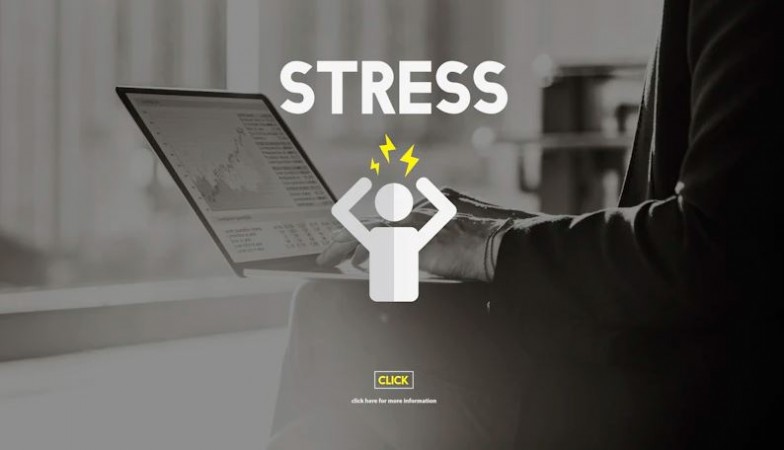
Stress has become an inevitable part of modern life. With hectic schedules, constant connectivity, and the pressures of daily responsibilities, more and more individuals are seeking effective ways to manage stress and maintain their well-being. In recent years, technology has played a vital role in shaping various aspects of human life, and stress management is no exception. This article explores the impact of technology on stress management apps, how they work, and their benefits in helping users cope with stress.
Understanding Stress Management Apps
What are Stress Management Apps?
Stress management apps are digital platforms designed to assist users in reducing stress, anxiety, and improving their mental well-being. These apps offer a wide range of features and techniques, such as meditation, mindfulness exercises, deep breathing techniques, and guided relaxation. Users can access these resources at their convenience, making it easier to integrate stress management practices into their daily routines.
How Do Stress Management Apps Work?
Stress management apps utilize various tools and strategies to help users alleviate stress. They usually offer guided sessions with soothing audio content and visuals to help individuals relax and focus. Additionally, many apps provide personalized recommendations based on user preferences and progress, tailoring the experience to suit individual needs effectively.
Technology's Impact on Stress Management
Remote Stress Management Solutions
Technology has revolutionized stress management by providing remote solutions accessible through smartphones and other devices. Users can engage with stress-relief activities anytime and anywhere, making it convenient for individuals with busy schedules to prioritize their mental well-being.
AI-Powered Personalization
Artificial Intelligence (AI) has significantly enhanced stress management apps by enabling personalized experiences. AI algorithms analyze user behavior and preferences, suggesting relevant meditation sessions, breathing exercises, or relaxing sounds, thereby increasing engagement and effectiveness.
Wearable Devices and Biofeedback
Wearable devices, such as smartwatches and fitness trackers, have integrated stress management features. These devices measure physiological data like heart rate, skin conductance, and body temperature to provide users with real-time biofeedback on their stress levels. This information empowers individuals to identify triggers and implement appropriate stress-reduction techniques.
Popular Stress Management Apps
Calm
Calm is one of the most well-known stress management apps, offering a wide array of meditation sessions, sleep stories, and calming music. With its user-friendly interface and soothing content, Calm has garnered a vast user base seeking relaxation and stress relief.
Headspace
Headspace is another popular app that provides guided meditation sessions for beginners and experienced practitioners alike. It covers various topics, including stress, anxiety, and sleep, making it a comprehensive solution for managing stress-related issues.
Aura
Aura stands out with its diverse selection of mindfulness exercises and personalized meditation recommendations. The app's user community also offers a sense of support and connection, fostering a positive environment for users.
The Benefits of Using Stress Management Apps
Reducing Stress and Anxiety
Stress management apps are effective tools for reducing stress and anxiety levels. Engaging in mindfulness practices and meditation has been scientifically proven to promote relaxation and emotional well-being.
Improving Sleep Quality
Chronic stress often leads to sleep disturbances. Stress management apps with dedicated sleep-related content can aid users in achieving better sleep quality and restfulness.
Enhancing Overall Well-being
Consistent use of stress management apps can contribute to overall well-being by promoting a healthier mind-body connection and enhancing emotional resilience.
Addressing Concerns and Criticisms
App Reliability and Effectiveness
While stress management apps have gained popularity, some users have raised concerns about the reliability and effectiveness of these digital solutions. It is essential for users to choose reputable apps with positive user reviews and expert recommendations.
Data Privacy and Security
As stress management apps collect user data, privacy and security become crucial factors to consider. Users should review app privacy policies and ensure their data remains protected.
The Future of Stress Management Apps
Integration of Virtual Reality
The future of stress management apps could involve incorporating virtual reality (VR) technology. VR can create immersive environments that transport users to calming virtual spaces, enhancing the effectiveness of relaxation techniques.
Gamification for Engagement
Gamification, the use of game elements in non-game contexts, could be utilized to boost user engagement in stress management apps. By introducing rewards, challenges, and progress tracking, apps can motivate users to maintain their stress-relief routines.
Technology has ushered in a new era of stress management, with stress management apps empowering individuals to take control of their mental well-being. By offering accessible, personalized, and effective solutions, these apps contribute significantly to reducing stress and promoting a balanced lifestyle. Embracing the potential of technology, stress management apps are poised to play an increasingly vital role in supporting individuals on their journey to better mental health.
Blogging in the Metaverse: Exploring Virtual Realms
Twitter Alteration to X has procured enormous monthly active users
Twitter pronto “X” is giving out Revenue Share to all Content Devisers Globally